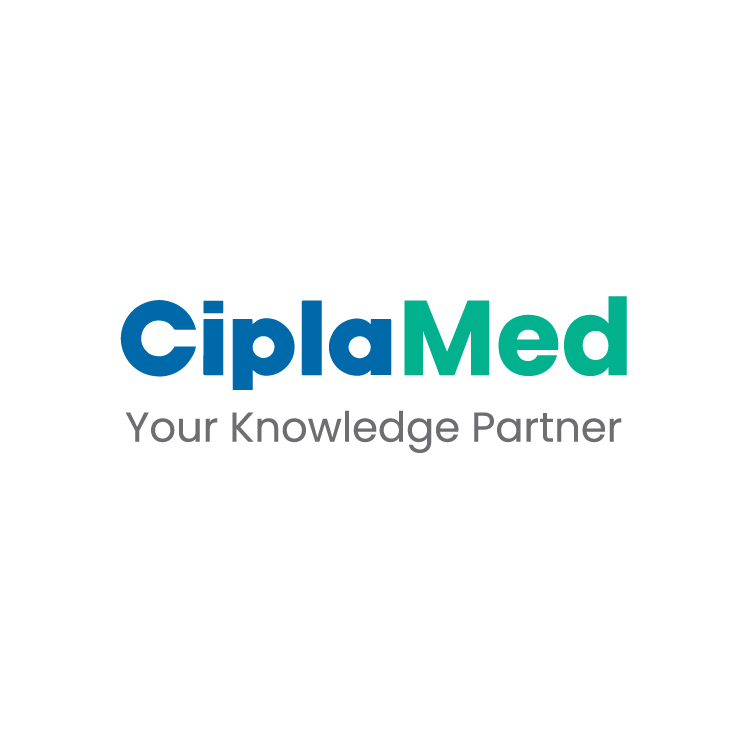ACR Convergence 2024: B Cell Biology & Targets in Autoimmune & Inflammatory Disease
Deep B Cell Tissue Depletion Following Anti-CD19 CART Cells Therapy
Speaker: Dr. Carlo Tur, MD – Universitätsklinikum Erlangen - FAU Erlangen - Nürnberg
Key Highlights
Efficacy of Anti-CD19 CAR T-Cell Therapy vs. Rituximab:
Anti-CD19 CAR T-cell therapy showed superior B-cell depletion in autoimmune diseases compared to rituximab, particularly in lymph nodes and non-lymphoid tissues, suggesting longer-lasting remission and a potential advancement in treatment for refractory autoimmune conditions.
CD20 Targeting Limitation with Rituximab:
Rituximab depletes peripheral B-cells but leaves residual B-cells in lymph nodes, where plasma cells (which lack CD20) can drive disease relapse. Anti-CD19 CAR T-cells target a broader spectrum of B-cells, achieving deeper depletion.
Complete B-Cell Depletion with Anti-CD19 CAR T-Cells:
CAR T-cell therapy completely eradicated CD19 and CD20-positive B-cells in lymph nodes, disrupting follicular architecture, including key structures like T-follicular helper cells. In contrast, rituximab did not fully deplete B-cells or disrupt follicular structures.
Long-Term Peripheral B-Cell Depletion and Immune Reset:
Anti-CD19 CAR T-cell therapy resulted in sustained peripheral B-cell depletion without correlating to disease relapse, indicating a durable immune reset.
Tissue-Specific Depletion with CAR T-Cells:
In non-lymphoid tissues like the kidney and colon, CAR T-cell therapy achieved complete B-cell depletion without affecting T-cells or macrophages, highlighting its targeted approach.
Clinical Implications:
-
CAR T-Cells Superiority: Achieves comprehensive B-cell depletion, potentially offering longer drug-free remission and a breakthrough treatment for autoimmune diseases.
-
Lymph Node Biopsies: Essential for evaluating treatment efficacy and guiding therapy decisions. Clinicians and pathologists must collaborate for accurate biopsy assessment.
-
Future Research: Focus on long-term follow-up, safety, and exploring additional CD20 therapies to improve lymph node efficacy, along with proteomic studies to understand mechanisms of follicular depletion.
Dr. Carlo highlighted the transformative potential of anti-CD19 CAR T-cell therapy in autoimmune disease treatment, marking a significant improvement over traditional B-cell depleting agents like rituximab. Further research into its safety and long-term effects will be crucial for optimizing its clinical use.
Rheumatoid Factor B Cell Clones Proliferate Predominantly as Atypical Memory B Cells in Reactive Cervical Lymph Node Follicles
Speaker: Dr. Rogier Thurlings, MD, PhD – Radboudumc
Key Highlights:
RF B Cells and Sjögren’s Syndrome Pathology:
Rheumatoid Factor (RF) B cells play a critical role in immune complex formation and vasculitis in Sjögren’s syndrome, potentially contributing to lymphoma development through their chronic proliferation and somatic mutations.
Reactive Lymph Nodes as Proliferative Hotspots:
High B-cell proliferation was observed in reactive cervical lymph nodes, particularly in germinal centers, while salivary glands did not show the same proliferative activity.
RF B Cells Localize in Atypical Memory Subsets:
RF B cells were found in a distinct FCRL5-expressing atypical memory B-cell cluster, demonstrating features of chronic antigen stimulation and continuous proliferation.
Large Clones and Ongoing Somatic Hypermutation:
RF B cells formed large, diverse clones in lymph nodes and salivary glands, with ongoing somatic hypermutation, indicating sustained immune response. In contrast, ANA B-cell clones were smaller, primarily infiltrating as plasma cells in the salivary glands.
Unique Markers and Activation Pathways:
RF B cells exhibited markers of mucosal-resident B cells, with activation likely driven by chronic stimulation via B-cell receptors, FCRL5 (IgG complexes), and Toll-like receptors.
Clinical and Research Implications:
-
Lymphoma Development: The abnormal proliferation and mutation of RF B cells in cervical lymph nodes highlight their potential role in lymphoma development in Sjögren’s syndrome.
-
Origins of RF B Cells: RF B cells likely originate from a small, resident B-cell population that becomes chronically activated, possibly due to mucosal antigens or persistent inflammation.
-
Therapeutic Targets: FCRL5 and related pathways could serve as promising therapeutic targets to reduce RF B-cell proliferation and mitigate lymphoma risk.
-
Diagnostic Advances: PET-guided biopsies offer a novel method to assess lymph node reactivity, enabling early detection and monitoring of disease progression in Sjögren’s syndrome.
Conclusion:
RF B cells are predominantly localized in cervical lymph nodes and form part of a unique atypical memory subset. Their proliferation and somatic mutation processes contribute significantly to Sjögren’s syndrome pathology and potential lymphoma risk. Future research should focus on targeting FCRL5 and understanding the activation mechanisms of RF B cells to reduce lymphoma risk and improve patient outcomes.
Comprehensive Immune Profiling of Anti-CD19 Chimeric Antigen Receptor T-Cell Therapy in Patients with Autoimmune Disease
Speaker: Dr. Ricardo Grieshaber-Bouyer, MD, PhD – University Hospital Erlangen
Key Highlights:
Dr. Ricardo explained the study, Comprehensive Immune Profiling of Anti-CD19 Chimeric Antigen Receptor T-Cell Therapy in Patients with Autoimmune Disease by Justin Chou et al. in detail:
The study aimed to comprehensively profile immune cell populations at the cellular and molecular levels, analysing changes before and after CAR T-cell therapy to uncover mechanisms driving clinical improvements.
Study Design and Methods:
-
Patient Cohort: Six patients with autoimmune diseases (SSc [n=2], IIM [n=2], LN [n=1], MG [n=1]) and five untreated healthy donors (HDs).
-
Sample Collection: Peripheral blood mononuclear cells (PBMCs) were collected at baseline and during early B-cell reconstitution following CAR T-cell therapy, coinciding with clinical improvements and biomarker normalization.
-
Multi-Omics Approach: Cell Sorting: 24 immune cell subsets (myeloid, T, B, and NK cells) were isolated using FACS with validated markers.
-
Analyses:
-
RNA-seq for gene expression.
-
ATAC-seq for chromatin accessibility.
-
TaPE-seq for protein expression.
-
Next-generation sequencing for high-resolution profiling.
Baseline Characteristics
-
All patients had confirmed diagnoses of autoimmune disease with active clinical symptoms.
-
HDs served as controls to benchmark immune cell subset changes.
-
Pre-treatment PBMC samples provided a comparative baseline for post-treatment analyses.
Key Results
-
Data Quality and Scope:
-
1,114 sequencing datasets passed QC, enabling high-quality multi-omics analysis.
-
Immune cell type-specific gene sets aligned with previously published data (e.g., Ota M, et al., Cell, 2021).
-
Immune Cell Subset Dynamics:
-
Increases Post-Therapy:
-
Transitional B cells.
-
CD56hi NK cells.
-
Decreases Post-Therapy:
-
Memory B cells.
-
Naive T cells.
-
Differential Expression Analysis:
-
Gene Expression: 6,424 differentially expressed genes.
-
Proteins: 161 differentially expressed proteins.
-
Chromatin Accessibility: 53,321 differentially accessible regions (p<0.05).
-
Gene expression trends post-therapy converged toward those of HDs, indicating normalization of autoimmune-related dysregulation.
-
Molecular Signatures:
-
Distinct clusters of immune cell subsets identified using t-distributed stochastic neighbour embedding (t-SNE).
-
Principal component analysis (PCA) suggested progressive restoration of immune cell homeostasis post-therapy.
Anti-CD19 CAR T-cell therapy induces extensive immune changes beyond B-cell depletion. Key findings include:
-
Epigenetic Reprogramming: Altered RNA/DNA binding and polymerase activity in T cells suggest shifts in gene regulation.
-
Type I Interferon Suppression: Marked downregulation in CD8+ T cells, monocytes, and dendritic cells reflects reduced inflammatory signalling.
-
Monocyte and Granulocyte Modulation: Decreased neutrophil degranulation and reduced low-density granulocytes signal diminished inflammation.
Broad Immune Modulation:
-
T Cells: The study revealed significant rebalancing in the T-cell compartment, particularly in regulatory T cells (Tregs). Post-CAR T-cell therapy, there was an upregulation of critical suppressive markers such as PDL1 and CTLA4, which are essential for Treg-mediated immune suppression. Prior to therapy, patients with active autoimmune disease exhibited markedly lower expression of these markers compared to healthy donors. After therapy, the Treg profiles normalized, closely resembling those of healthy individuals.
-
NK Cells: An increase in CD56^bright^ NK cells was observed, associated with immunoregulation and inflammation resolution.
-
Myeloid Cells: There was a reduction in inflammatory monocytes and neutrophil degranulation markers, indicating a decrease in systemic inflammation.
Epigenetic and Gene Expression Remodelling:
CAR T-cell therapy normalized dysregulated pathways, including RNA and DNA binding and polymerase activity, suggesting epigenetic regulation changes across T-cell subsets. Type I interferon signalling was significantly downregulated, especially in CD8 T cells, monocytes, and dendritic cells. Additionally, reduced neutrophil degranulation pathways in monocytes indicated a decrease in low-density granulocytes, reflecting immune modulation and rebalancing post-therapy.
Systemic Immune Rebalancing:
The immune system rebalances following CAR T-cell therapy, including the downregulation of interferon signalling across various immune cell types and a reduction in inflammatory myeloid cells.
-
CAR T-cell therapy has the potential to shift the immune system of autoimmune disease patients towards a more balanced and healthy state.
-
Anti-CD19 CAR T-cell therapy induces widespread immunological changes that extend beyond its well-known effects on B cells.
-
The Verily multi-omics Immune Profiler™ platform has delivered ground-breaking insights into how CAR T-cell therapy affects the immune system.
-
Ongoing clinical trials with KYV-101 will continue to investigate how CAR T-cell therapy regulates autoimmunity.
Clinical Implications:
-
Mechanisms of Long-Term Remission: CAR-T therapy induces systemic immune remodeling that goes beyond B-cell depletion. This immune balance restoration could explain the observed durable drug-free remission in patients.
-
Potential Therapeutic Targets: Targeting pathways involved in type I interferon signaling and Treg function may enhance therapeutic outcomes.
-
Biomarkers for Monitoring Treatment Response: Changes in Treg markers, NK cells, and inflammatory myeloid cells could serve as indicators of therapeutic response.
Dr. Ricardo concluded that anti-CD19 CAR-T therapy triggers widespread immune system remodeling, shifting immune cell populations and restoring a balanced immune response. Beyond B-cell depletion, the therapy promotes regulatory mechanisms across T cells, NK cells, and myeloid cell compartments.
American College of Rheumatology Convergence 2024, November 14–19, Washington, D.C



.webp?updated=20241028052153)
